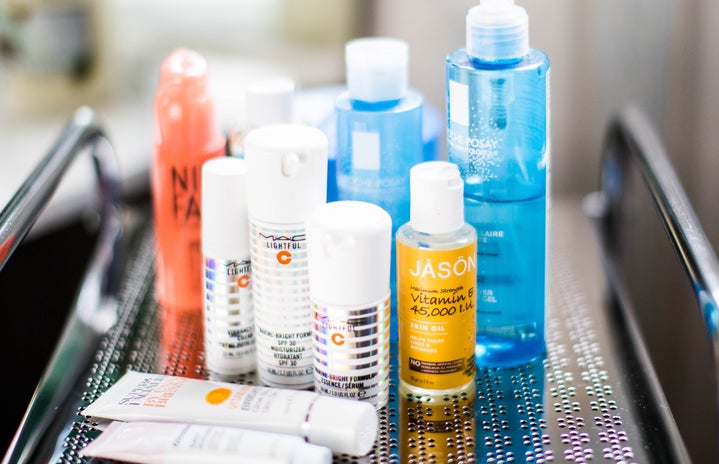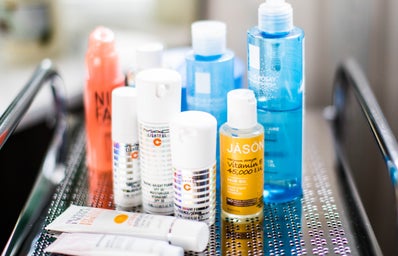We live in a visual society. Appearances are judged and used to identify whether a person is worth your time. We turn away from things that aren’t “pretty” to look at, and we tune them out. Social media has emphasized the importance of appearance in today’s world. Though it’s incredible to be able to connect with different people from around the world through social media, the emphasis on aesthetic can be harmful.
According to dosomething.org, 91% of women are dissatisfied with their bodies, and are attempting to “fix” them through dieting. 58% of female college students feel that they must be a certain weight. 95% of those with eating disorders are aged 12 to 25. This same age demographic is spending an incredible amount of time on social media, such as Instagram, Facebook, and Twitter. All of these platforms offer the ability to upload images, and all of these images can be subject to “likes”. The amount of likes one gets often is used by the individual to measure his/her/their worth as a person, whether he/she/they realizes it or not.
Image provided by Pixabay
An experiment reported by ahchealthnews.com used magnetic resonance imaging (MRI) surveillance to determine how the number of “likes” a teenager receives affects his/her/their brain. It was found that as the number of “likes” a person received increased, the reward circuitry part of the brain was activated. Unsurprisingly, the sense of gratification among users of social media is great when the amount of “likes” meets or surpasses their hopes or predictions. Everyone of all ages has this reward circuitry in the brain, but it is especially sensitive during adolescence. This may contribute to the incredible insecurity and self-hate adolescents, teenagers, college students, and young adults feel.
Kendall Jenner is a model and reality TV star who has 96.6 million followers on Instagram. Cara Delevingne, a British model, has 41.4 million followers. Gigi Hadid, also a model, has 43.8 million followers, and her sister Bella Hadid has 20.5 million followers. Another model Emily Ratajkowski has 20 million followers. There are many more models and so-called “Instagram models” that have an incredible number of followers on many social media platforms. Often, the commonalities existing among these models is a very thin body, light to medium skin tone, at least 5 feet 8 inches tall, and Eurocentric and Anglicized features (thin-bridged nose, higher cheekbones, straight hair, etc.). But obviously, most of the world’s individuals do not meet these standards of “beauty”.
Image provided by Pixabay
Additionally, beauty standards change with time. For example, especially in Instagram culture, full lips, a large butt, and a thin waist seem to be the package deal of “beauty.” Because of this, there are numerous “fitness” accounts that feature women with these features and what exercises they do to attain their toned and big bottoms. Often, these women have had work done to their bodies that attest for their appearances. This is not to say that I look down on cosmetic surgery; I believe everyone should have agency over their own bodies. But the idea that these bodies can come naturally or through large amounts of exercise is not a healthy idea to perpetuate, especially to young people who are still developing their self-confidence.
The other problem that I think should be addressed in beauty culture is that the traits that were once or are still being used to degrade people of color are now being praised when these traits are possessed by European or white people. I believe it should be a responsibility of a media or beauty influencer to acknowledge that the traits they are praising have also been used to oppress and stereotype difference races and cultures. Additionally, people of color who do not meet these “beauty” standards are made to feel insecure, as though they’re missing a trait they’re “supposed” to have. Lip fillers, breast enhancements, liposuction, plastic surgery, and the like are not things to be looked down upon—it is the fact that individuals are pressured into changing how they look in order to feel valued by the world that should be looked down upon. Every person has the right to free agency over his/her/their body, but it should also be perpetuated in society that all bodies and all features are worthy and beautiful, which is definitely not the case today.
Image provided by Pixabay
This is also not to look down upon social media, either. I think the power of social media can be used to share the different types of beauty that exist in the world. I’m not discouraging that you “like” an Instagram model’s photo, because those women are beautiful, but they are not the only kind of beautiful. This is also not to exclude men from feeling insecure about their appearances. Men are also expected to have muscular physiques and chiseled jawlines and abs, but the case is the same for them—there should not be one standard of beauty for men. I chose to focus specifically on women and feminine-presenting individuals because the beauty and entertainment industries seem to have greater expectations for these individuals than men. I recently watched the documentary “Miss Representation” for my Gender and Literature class, and I definitely recommend it to gain some insightful statistics and stories on how the media affects self-image and society’s values.
Body love should be valid for every body. Those people who insult and invalidate individuals who are not thin seem to have adopted the argument of “I just don’t think people should be praised for being unhealthy!” Though health is obviously important, who’s to say that the person being insulted isn’t healthy? And even if they aren’t, it doesn’t mean they don’t deserve to love or show off the bodies they have. Don’t pretend to care for an individual’s health when in reality you just hate to see individuals love themselves despite what society has defined as beautiful. The same goes for those individuals who have been deemed “too skinny.” If these people are not harming themselves nor anyone else, your negative opinion of their bodies just seems to communicate that you’re a jerk.
This is something that I think all of us can relate to. I definitely struggle with reminding myself that I’m not “supposed” to look like anything or anyone, except for myself. The primary reason for going to the gym should be to feel better and to take care of my body, not to try to attain a flat tummy or big butt. Your body is a powerful and beautiful thing. I heard a story in which a little girl was asked what her favorite part of her body was, and she answered her legs because they allow her to run. We often forget that our bodies’ primary function is to survive, not to be an object of desire. Take care of your body and try to love your body, because it works really hard to keep you healthy and alive. Your body and features communicate a story of race and ancestry that no one else has; be proud of that story, and try not to let media get under your skin.
Image provided by Pexels


